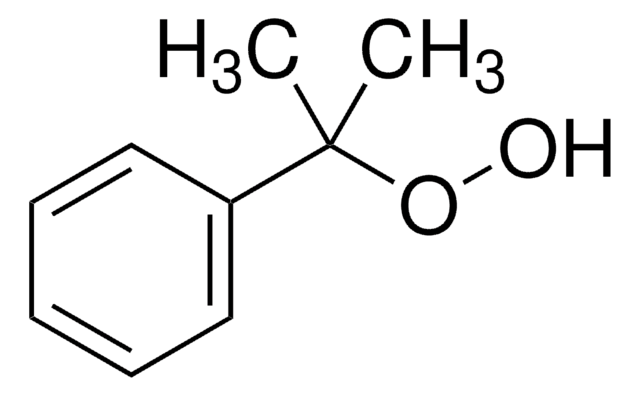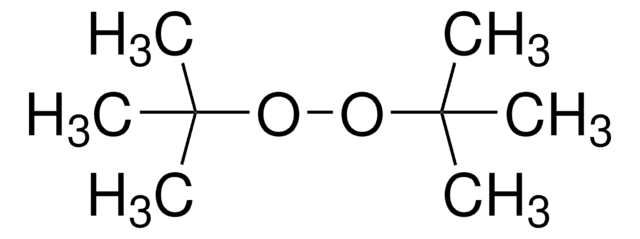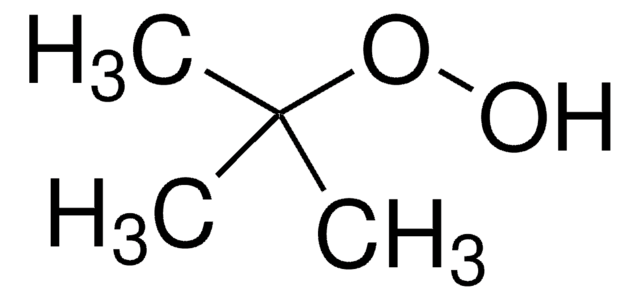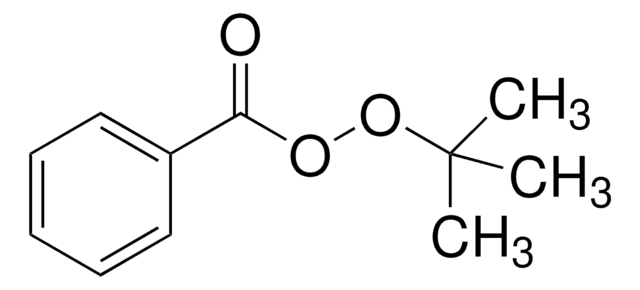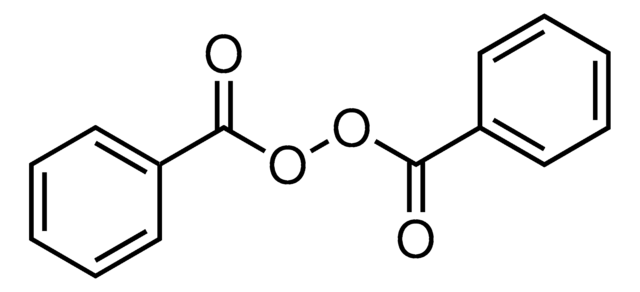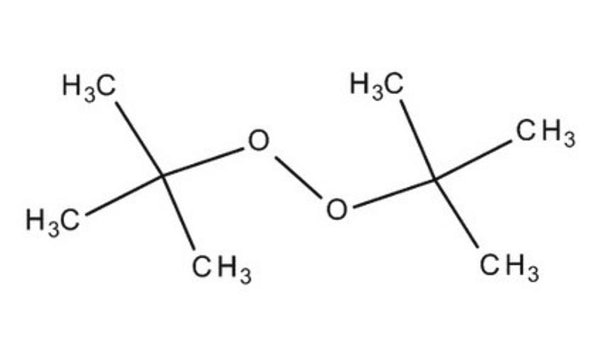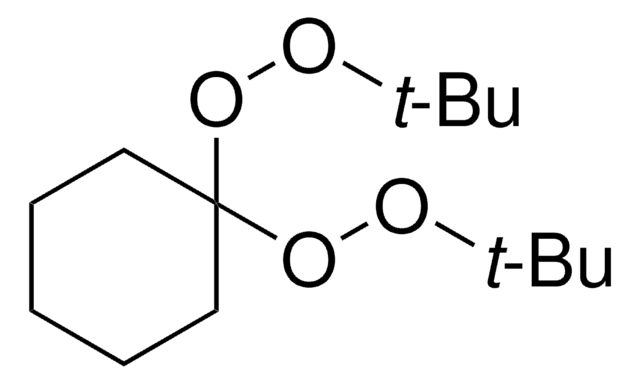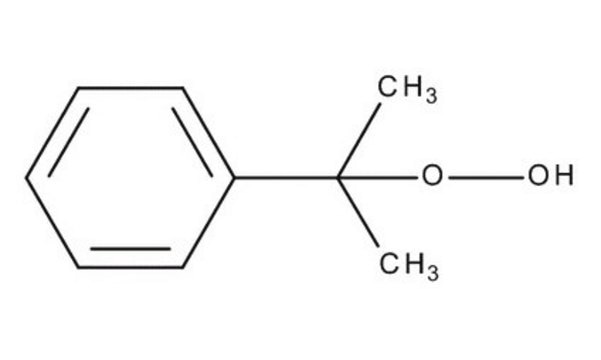329541
Dicumyl peroxide
98%
Synonym(s):
Bis(1-methyl-1-phenylethyl) peroxide, Bis(α,α-dimethylbenzyl) peroxide
About This Item
Recommended Products
vapor density
9.3 (vs air)
Quality Level
vapor pressure
15.4 mmHg ( 38 °C)
assay
98%
form
solid
reaction suitability
reagent type: oxidant
mp
39-41 °C (lit.)
density
1.56 g/mL at 25 °C (lit.)
storage temp.
2-8°C
SMILES string
CC(C)(OOC(C)(C)c1ccccc1)c2ccccc2
InChI
1S/C18H22O2/c1-17(2,15-11-7-5-8-12-15)19-20-18(3,4)16-13-9-6-10-14-16/h5-14H,1-4H3
InChI key
XMNIXWIUMCBBBL-UHFFFAOYSA-N
Looking for similar products? Visit Product Comparison Guide
Related Categories
Application
- in vulcanization of rubber
- as a crosslinking agent in the synthesis of polylactic acid composite fibers
- in the preparation of polyethylene composites
- in the synthesis of polyamide 112/ethylene vinyl acetate copolymer blends.
signalword
Danger
Hazard Classifications
Aquatic Chronic 2 - Eye Irrit. 2 - Org. Perox. F - Repr. 1B - Skin Irrit. 2
Storage Class
5.2 - Organic peroxides and self-reacting hazardous materials
wgk_germany
WGK 2
flash_point_f
230.0 °F - closed cup
flash_point_c
110 °C - closed cup
ppe
dust mask type N95 (US), Eyeshields, Gloves, type P3 (EN 143) respirator cartridges
Certificates of Analysis (COA)
Search for Certificates of Analysis (COA) by entering the products Lot/Batch Number. Lot and Batch Numbers can be found on a product’s label following the words ‘Lot’ or ‘Batch’.
Already Own This Product?
Find documentation for the products that you have recently purchased in the Document Library.
Customers Also Viewed
Our team of scientists has experience in all areas of research including Life Science, Material Science, Chemical Synthesis, Chromatography, Analytical and many others.
Contact Technical Service